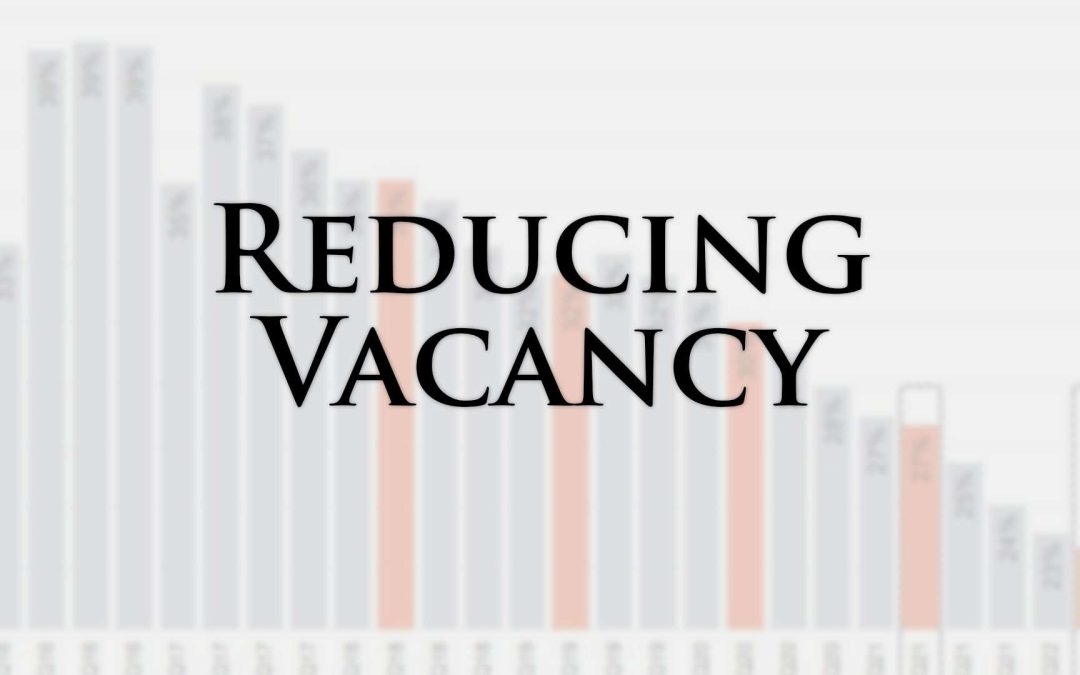Vacancy and turnover costs are a drain on landlords.
Rents are increasing at a torrid pace. Single-family rents (SFRs) are up 13.4%, like I mentioned recently.
But what actually happens when the rent is raised?
Do tenants stay? Or do they spurn the increase and decide to move out, creating the dreaded vacancy and turnover?
More single-family renters than ever are staying in-place, or at least ever since John Burns RE Consulting began tracking this measure.
An astounding 77% renew their lease. Watch the turnover decrease over time:
Again, that 77% is for SFRs. Retention rates are lower in the apartment world, currently about 56%.
But apartment retention has still trended up the past few years for Class A and B apartments. It’s down for Class C apartments. You can read more about that here.
Overall, retention in residential rentals has increased for years.
Why?
Tenants are staying put longer for three main reasons:
1) Home buying costs have soared. This keeps people renting.
2) At lease renewal, rental rates increase. But rents on vacant units are increasing even faster, so tenants renew.
3) Due to the national paucity of housing supply, often there’s simply nowhere else to move.
Previously, I’ve given you my best techniques for getting the greatest rent increase possible while ensuring that tenants stay in your unit (here).
See, there should also be substantial landlord motivation to increase the rent. It’s bigger than many realize.
Consider that a 10% rent increase can be a 20% to 25% cash flow increase if you’re well-leveraged.
Imagine extrapolating this effect across your portfolio.
That’s how much more money you feel in your pocket every month.
Sure, the NFL season kicks off tonight. But this promises a bigger life impact than winning your fantasy football league trophy.
Of course, you learned that this wealth-magnifying effect is just one of three ways that real estate investors profit from inflation.
GRE scholars recognize that it’s the third crown of the Inflation Triple Crown™, named “Cash Flow Enhancement”.
As we know, emotions don’t have a place in real estate investing.
But if emotions are creeping in and you feel like you don’t deserve to hike the rent, give yourself some credit. Realize that you:
- sunk a down payment into the rental property; the tenant didn’t
- weathered landlords’ pandemic uncertainty
- took more market risk than your tenant
- established good credit for your loan
Grab the day by the turnkeys.
If you’re looking to add rental properties to your portfolio, you can find the best nationwide providers at: GREmarketplace.com.
We just added new providers in the Mid South and are in the process of adding even more.
Create one login and access all providers. It’s truly free. There’s no subscription cost.
Thought getting your money to work for you creates wealth? It doesn’t! That’s a myth. My one-hour investing video course is now 100% free: Real Estate Pays 5 Ways. For a limited time, you can learn how wealth is really created, here.





